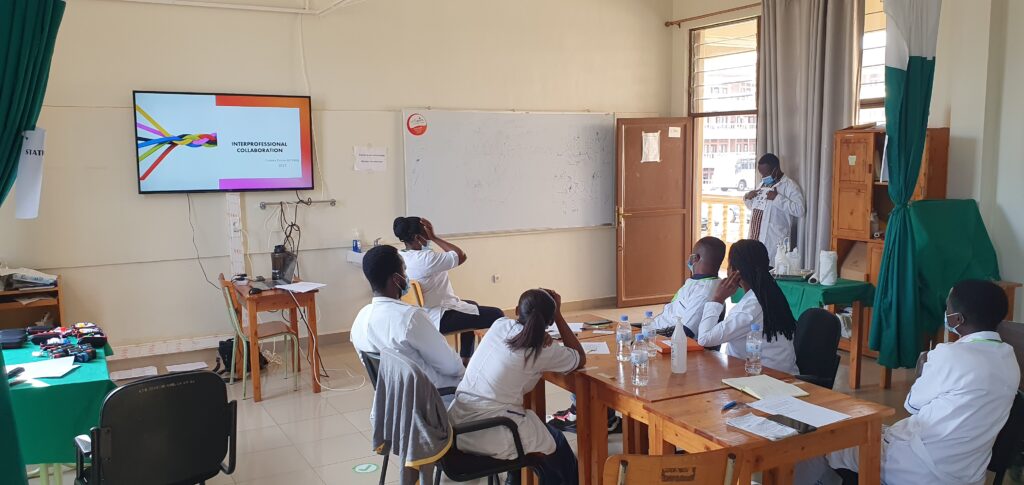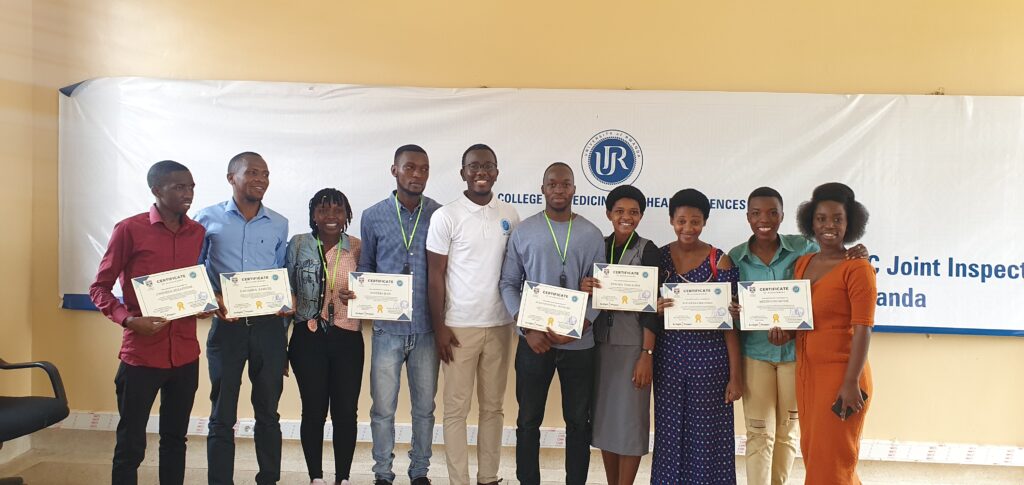Supporting eye health in Rwanda and beyond
Eye care is a dimension of health that is sometimes overlooked, particularly in low-resource communities where other overwhelming social or health challenges hinder patients from seeking care until it is too late. As such, there is an urgent need for effective medical training and practice that provides quality eye care at the community level. Gatera Fiston Kitema, an Ophthalmic Clinical Officer from Rwanda, works to address these needs – combining his expertise in eye care with frugal and effective diagnostic and training tools developed by the Arclight Project social enterprise, based at the University of St Andrews.

Fiston is an Assistant Lecturer at the University of Rwanda, currently completing his PhD in the School of Medicine. His connection to St Andrews began when he met Dr Andrew Blaikie, Senior Lecturer in Ophthalmology at the University of St Andrews, at COESCA, the leading African Eye Care conference, in Uganda in 2018. Here he was introduced to the Arclight device: a low-cost diagnostic tool developed at the University of St Andrews. It combines three functions (ophthalmoscope, anterior segment loupe, and otoscope) for diagnosing eye and ear disease into one highly robust and compact solar-powered device. Its portability and efficient design have garnered it widespread recognition, most recently being included in both the World Health Organisation (WHO)’s report on eye examinations for newborns, as well as the WHO’s Manual for Ear Health. Inspired by its capability to simplify the process of training and diagnosis, Fiston and colleagues developed a proposal, funded by the Global Challenges Research Fund (GCRF), to integrate the Arclight into prequalification inter-professional education (IPE) of health care students at the University of Rwanda.
Blaikie, the clinical and research lead for the Arclight project, along with several medical education experts from St Andrews and Rwanda, now supervises Fiston’s PhD project. Building on previous experience and research funded by both German Rotary and the University of St Andrews Impact Fund, Fiston seeks to evaluate the wider impact of Arclight training on the delivery of eye health services from a selected cohort of health care workers. Assessing their knowledge, skill acquisition and retention from pre-qualification, the project examines how the training will translate into qualified health care workers practice, with particular emphasis on impact upon the quality of eye care delivery and collaborative teamwork.

Formerly trained as an Ophthalmic Clinical Officer himself, Fiston expanded from treating individual patients at the clinical level to considering ways to positively impact wider communities throughout Africa. This shift in scope highlighted to him the necessity of addressing population-wide health concerns at the community level, understanding where diseases come from, and how they can be detected when treatment is still possible. Additionally, as eye examinations can often help detect other major health issues like hypertension or diabetes, collaborative practice between eye and other general medical health care workers is important in holistically addressing patients’ needs.
With influential bodies such as the Rwandan Ministry of Health and Biomedical Centre having demonstrated their support for his work, Fiston is well-placed to ensure that the results of his GCRF-funded PhD reach as far as possible, supporting the provision of quality eye care for low-resource communities, and improving training for future generations of health professionals. Looking ahead, findings from this research will also hopefully inform both policy and practice in both health facilities and training institutions in the future – not just in Rwanda, but beyond.